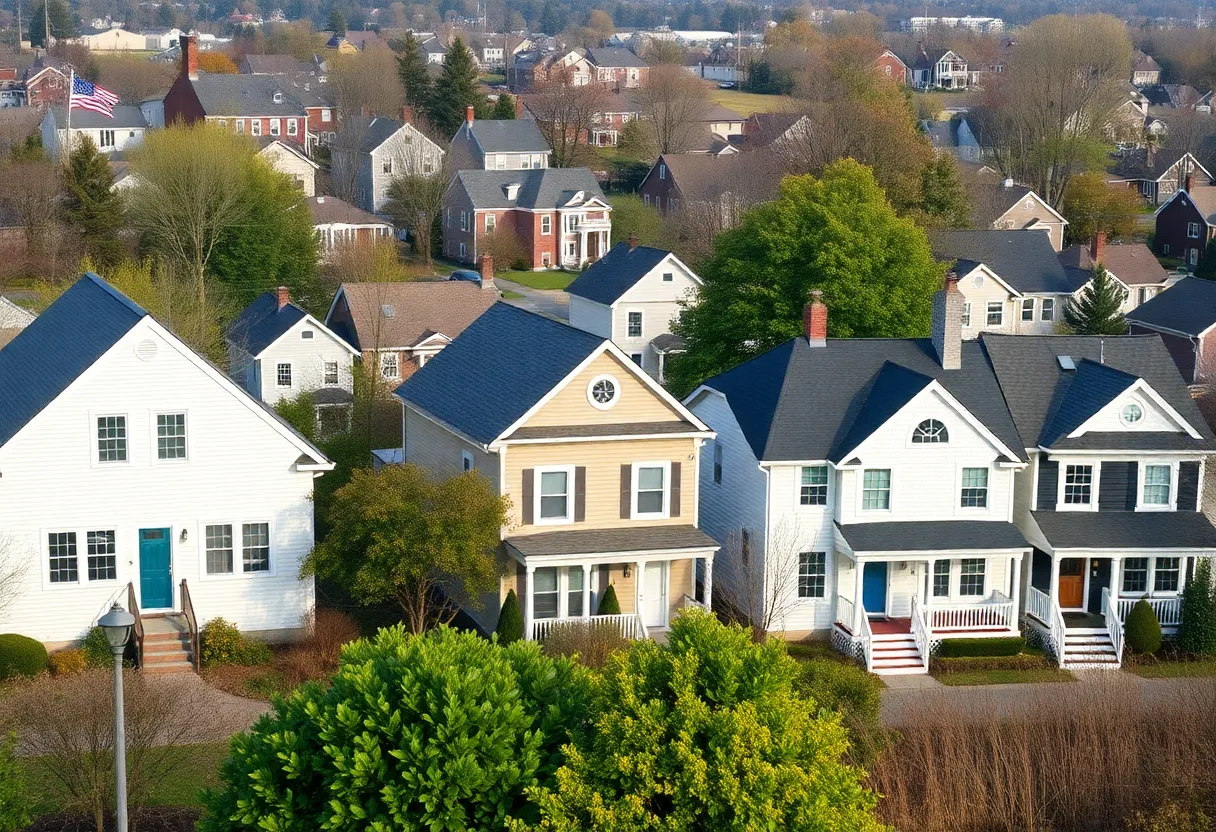News Summary
Massachusetts is grappling with a significant homeownership crisis, where home prices are disproportionately high compared to average incomes. In Greater Boston, the house-price-to-income ratio has reached alarming levels, pushing many working-class families out of the market. With a dire housing shortage and rising rental costs, state leaders are under pressure to implement effective policies and build new housing units to alleviate the crisis. Racial disparities in homeownership further complicate the issue, highlighting the need for a concerted effort to ensure economic equity and affordable living.
Massachusetts is currently facing a severe homeownership crisis, with the typical home price soaring to six times the average annual household income, and nearly seven times in the Greater Boston area. This stark disparity highlights the growing financial gulf between housing costs and household incomes, significantly impacting the ability of residents to secure affordable housing.
The house-price-to-income ratio serves as a critical indicator of a healthy housing market, with a normal ratio considered to be around three. In 2023, Greater Boston reported an alarming ratio of 6.3, more than double the ideal rate. This sharp increase in home prices compared to stagnant income growth has put homeownership out of reach for many families, particularly those in the working class. To afford the typical home in Massachusetts, which costs approximately $1.3 million, a household now needs to earn roughly $217,000 annually.
The roots of this crisis can be traced back to a significant housing shortage that has emerged since the 2000s, driven by decades of underbuilding. The demand for housing has surged alongside the growth of high-wage jobs in Massachusetts, yet the construction of affordable starter homes has largely been replaced by the trend of building larger, more expensive “McMansions.” This shift has left many working-class families, particularly those earning minimum wage, unable to find suitable housing within their financial means.
The economic landscape further reveals a troubling trend in homeownership rates. Over 70% of white households own homes, in stark contrast to only 38% of Black households. This disparity in homeownership is exacerbated by factors such as housing discrimination and gentrification, which have compelled many Black families to relocate to more affordable suburban areas, referred to as “Gateway Cities.”
Adding to the crisis, more than 42,000 households are currently waiting for public housing through the Boston Housing Authority, and around 160,000 families are on waiting lists for the Massachusetts Rental Voucher Program. The challenge of affordable rentals also looms large in Boston, where the average rental price exceeds $3,300 per month, making it inaccessible for low-income families.
In response to the escalating crisis, the administration of Governor Maura Healey has pledged to build at least 222,000 new housing units over the next decade in hopes of mitigating the affordability issues. Congressman Jake Auchincloss has labeled high housing costs as the “single biggest economic challenge” facing the state, indicating a pressing need for substantial policy shifts.
Currently, Massachusetts is projected to construct only about 10% of the housing units required to meet the demand. To counteract this, state initiatives like the Momentum Fund have been introduced, offering no-interest and low-interest loans to developers focused on creating affordable housing options. Additionally, state proposals contemplate rezoning brownfields and revamping affordable housing regulations, including adjustments to Chapter 40B, which governs subsidized housing developments.
The situation is further complicated as federal housing subsidies face potential cuts, which threaten to exacerbate the ongoing housing crisis and elevate rents for vulnerable families, putting even more pressure on an already strained system. Reports indicate that the number of Massachusetts households qualifying for affordable housing significantly outnumbers the available units, intensifying the situation of housing insecurity.
As these challenges unfold, it is crucial for state and local leaders to address the persistent gap between housing prices and incomes to foster economic equity and ensure that all residents have access to safe and affordable homes.
Deeper Dive: News & Info About This Topic
HERE Resources
Boston City Council Forms Commission to Tackle Office Vacancies
Boston Suburbs Experience Rental Growth as City Housing Affordability Declines
Boston Faces $1.7 Billion Decline in Commercial Property Tax Revenue
Massachusetts High Schools Rank Among Nation’s Best Amid Funding Concerns
Boston Faces Rising Sea Level Threats by 2050
Milton Moves Towards Compliance with MBTA Communities Act
Mayor Wu Proposes Zoning Changes to Revitalize Boston
Massachusetts to Develop 450 Acres for Affordable Housing
Governor Healey Launches Initiative for Affordable Housing
Massachusetts Governor Maura Healey Faces Declining Approval Ratings
Additional Resources
- Bloomberg: Massachusetts Needs 222,000 Housing Units by 2035
- Wikipedia: Housing Crisis
- Cape Cod Times: Massachusetts Housing Crisis
- Google Search: Massachusetts Housing Crisis
- Boston Globe: Housing Costs Chart
- Google Scholar: Massachusetts Housing Affordability
- Esri: Massachusetts Maps Housing Affordability
- Encyclopedia Britannica: Affordable Housing
- Architect’s Newspaper: Zoning in Cambridge’s Affordable Housing Crisis
- Google News: Affordable Housing

Author: STAFF HERE BOSTON WRITER
The BOSTON STAFF WRITER represents the experienced team at HEREBoston.com, your go-to source for actionable local news and information in Boston, Suffolk County, and beyond. Specializing in "news you can use," we cover essential topics like product reviews for personal and business needs, local business directories, politics, real estate trends, neighborhood insights, and state news affecting the area—with deep expertise drawn from years of dedicated reporting and strong community input, including local press releases and business updates. We deliver top reporting on high-value events such as Boston Marathon, Head of the Charles Regatta, and Boston Harborfest. Our coverage extends to key organizations like the Greater Boston Chamber of Commerce and Associated Industries of Massachusetts, plus leading businesses in finance, biotech, and insurance that power the local economy such as Fidelity Investments, Biogen, and Liberty Mutual Insurance. As part of the broader HERE network, we provide comprehensive, credible insights into Massachusetts's dynamic landscape.





